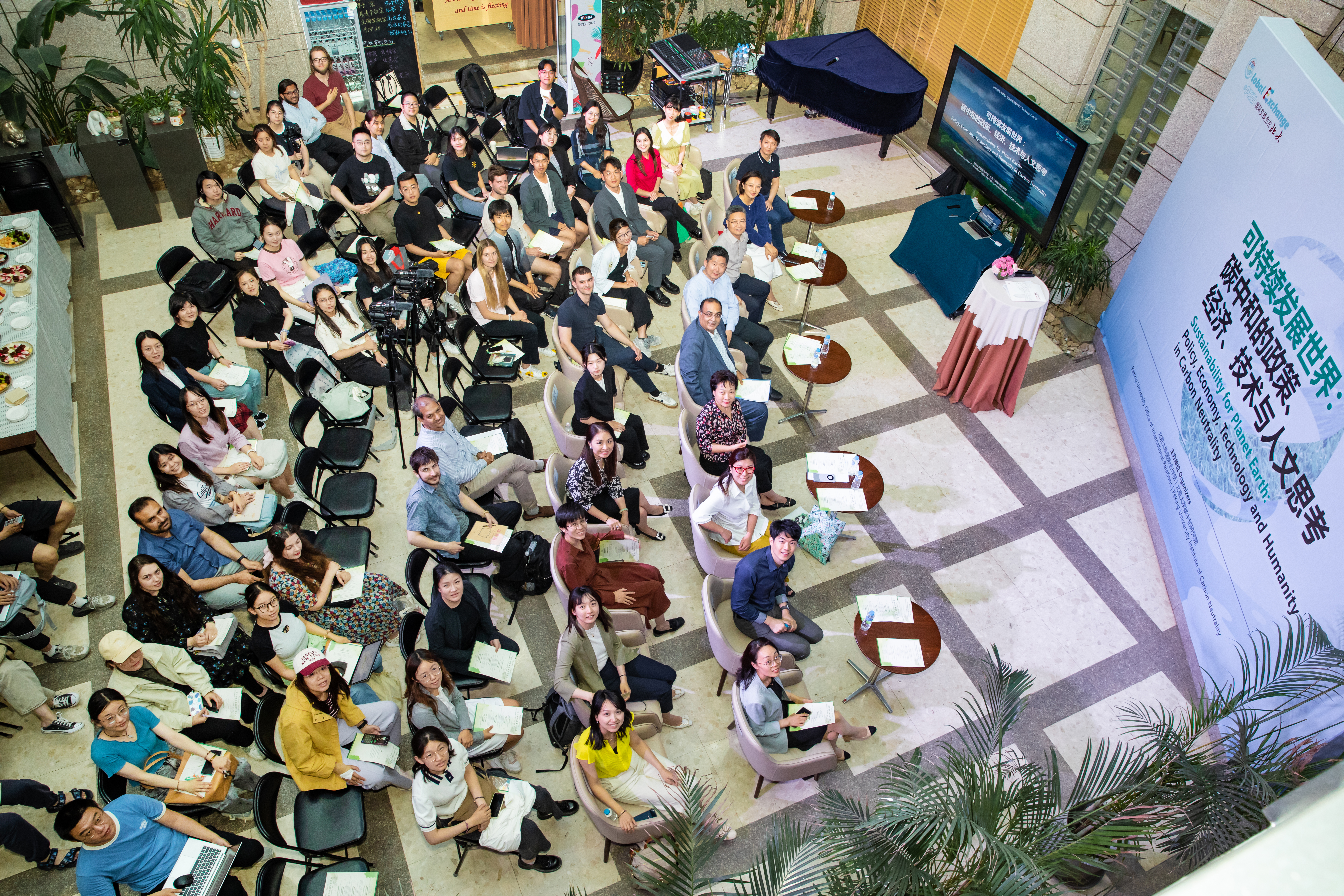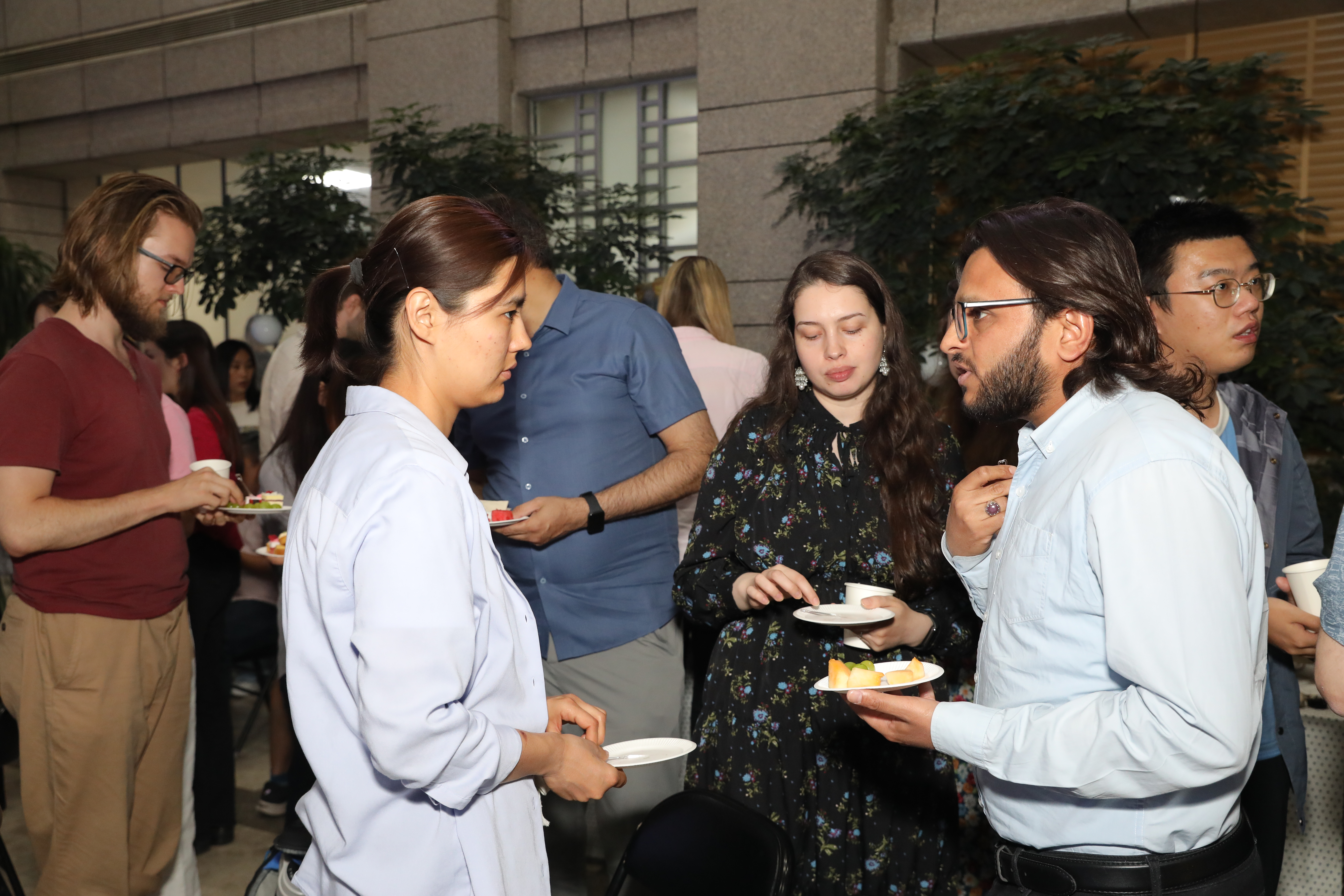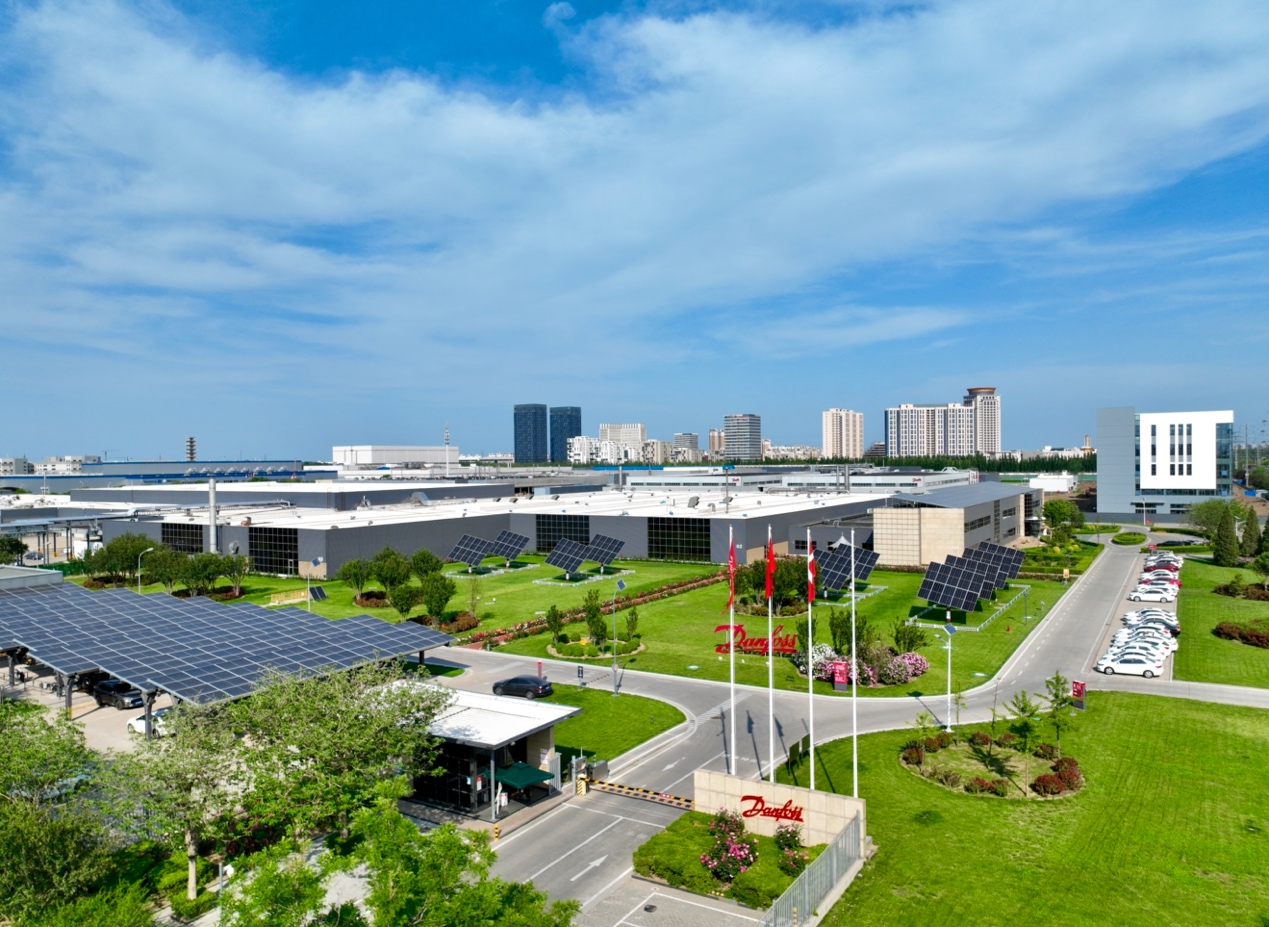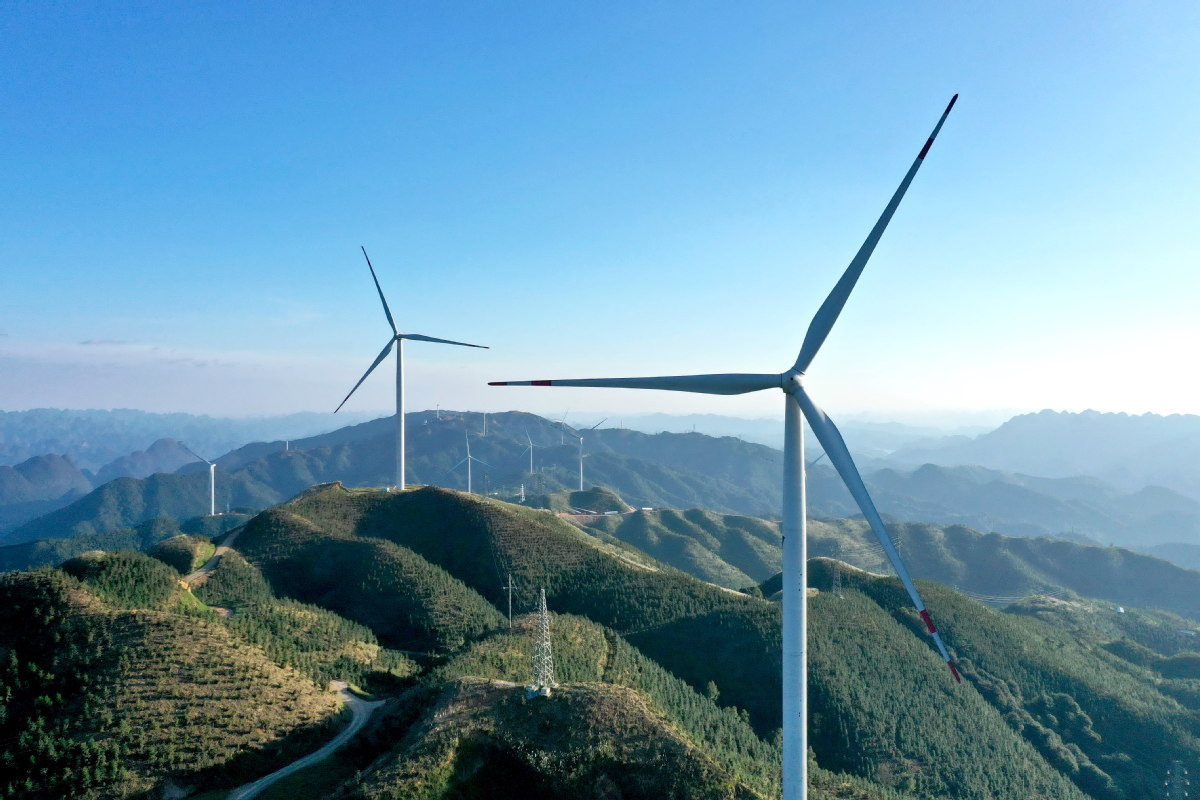Peking University, May 16, 2024: The third edition of Peking University (PKU) Exchange Cafe was held on Wednesday, May 15, 2024, under the theme "Sustainability for Planet Earth: Policy, Economy, Technology, and Humanity in Carbon Neutrality." This event was organized by Peking University's Office of International Relations and the Institute of Carbon Neutrality, in observance of China's National Low Carbon Day.
Special guests, representatives, and students participated in this informative session. Among the attendees were Prof. Shahbaz Khan, director of the UNESCO Regional Office for East Asia; Piao Shilong, vice president of Peking University and an academician at the Chinese Academy of Sciences; Prof. Zhang Haibin, deputy dean of the PKU Institute of Carbon Neutrality; and Dai Hancheng, an associate professor at the College of Environmental Sciences and Engineering of Peking University.
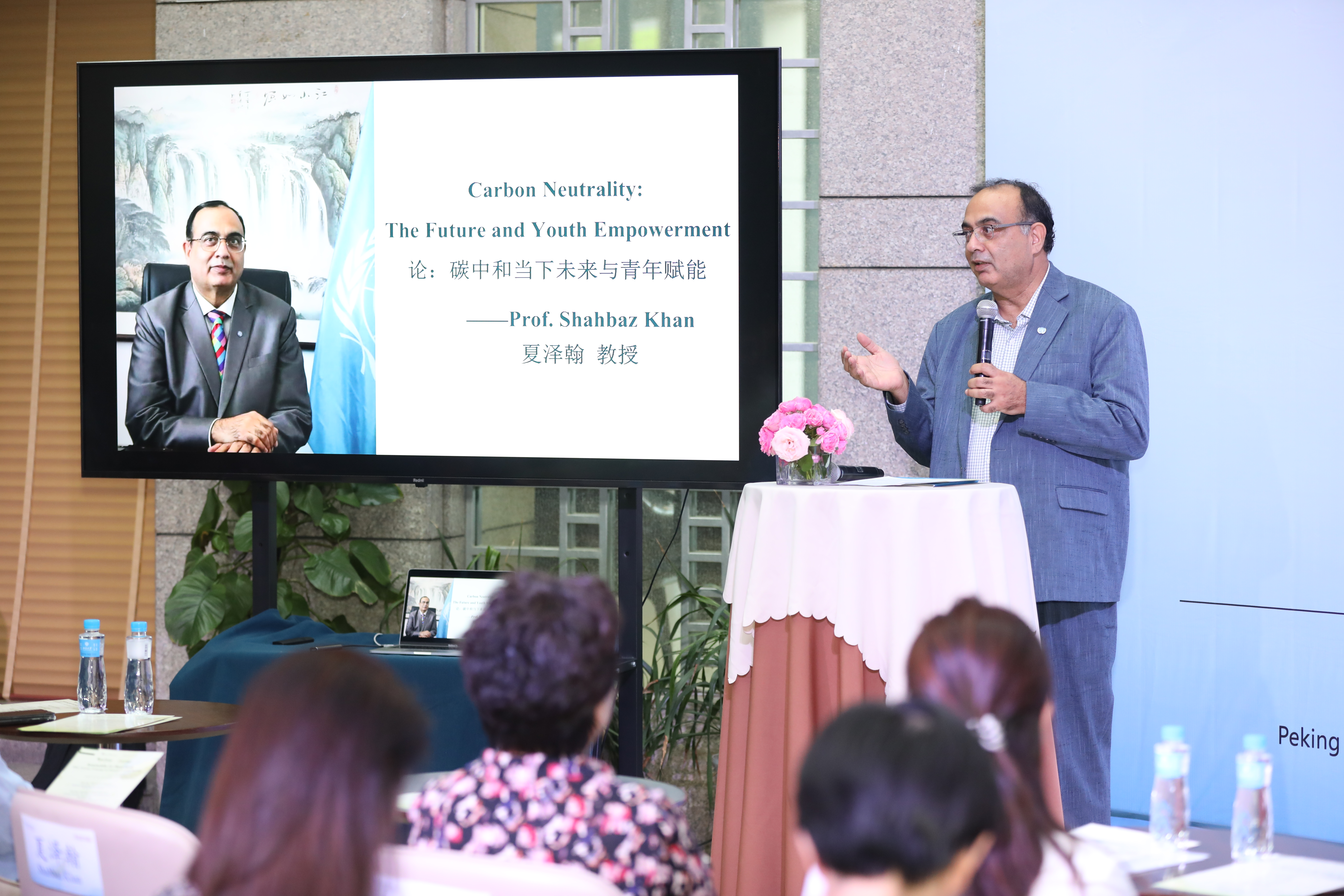
In his remarks, Prof. Khan emphasized the need to facilitate peace through education, science, and culture, stating that this is UNESCO’s mission. He highlighted the importance of AI and advanced technologies, noting that China is crucial to UNESCO due to its significant intellectual capital. He pointed out that some areas in China face threats from climate change and mentioned that there are 43 intangible cultural heritage sites in the country. Khan also discussed topics such as food security, energy security, and carbon neutrality, praising China's leadership in electric vehicles and its efforts in sustainability.
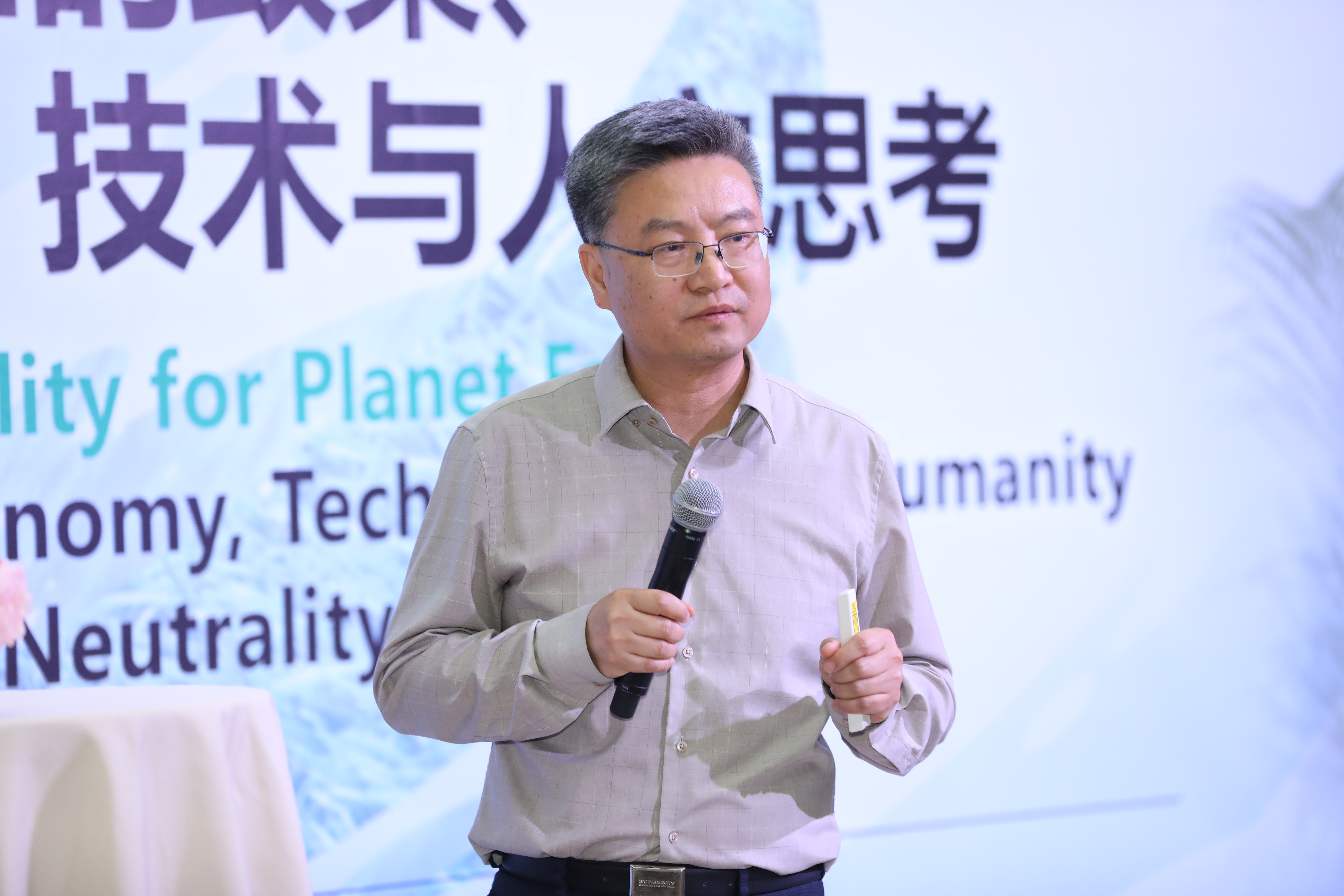
Prof. Zhang noted that China has contributed concepts including building a "ecological civilization" and "a community with a shared future for mankind" to global climate governance. He reviewed China's evolving role in international climate change negotiations over the past 30 years, highlighting its leadership in South-South cooperation and its commitment of more than 1 billion yuan in climate programs for developing nations. China has signed 35 Memorandums of Understanding with 31 developing countries and has equipped over 2,000 officials from 120 countries through capacity-building workshops, donating energy-saving and renewable technology to 24 countries, the professor added.
Six outstanding students from different backgrounds and universities shared their ideas. Guo Chaoyi, a student of energy and climate change modeling at Peking University; Florian Wengel, an economics student at the University of London; Denise Yu Thompson, studying environmental policy at the University of California, Berkeley; Lu Ziyan, a student of International Organization and International Public Policy at Peking University; Stephanie Siqi Wu, an engineering student at the University of Melbourne; and Peng Yijing, an economics student at Peking University. They discussed the challenges and potential solutions for a sustainable future, emphasizing that reaching carbon neutrality is essential for long-term sustainability. They stressed that China's transition to carbon neutrality will significantly impact global efforts to combat climate change.
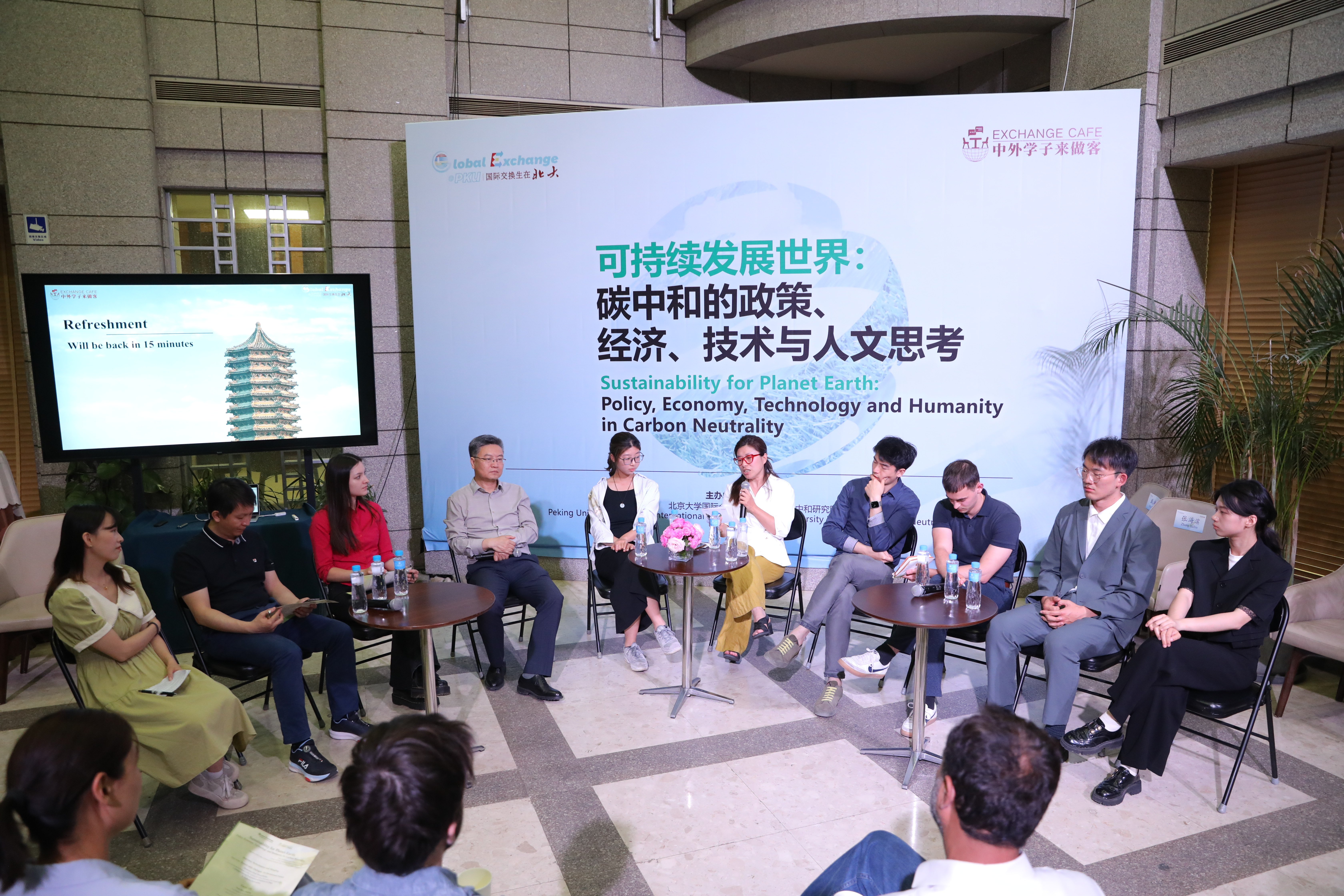
Around eighty attendees, including teachers and students from nearly thirty PKU departments and schools, key research institutes, prestigious academic journals, the Chinese Academy of Sciences, and the University of Birmingham, participated in the event.
Feedback from participants
Guo Chaoyi (China):
I feel happy that I can be involved in this activity, and I'm glad that I can share ideas and thoughts in the area of economics and technology of carbon neutrality. And most importantly, I can learn so many different thoughts and insightful ideas from not only professors and also many young people and students like me! Especially when it comes to 'how can young people make more contribution to carbon neutrality', this makes me feel inspiring. For example, how can we reduce the over-using of paper bag in Luckin Coffee shop in our campus? How can we reduce the food wasting in campus's cafes? Lots of things need to do and lots of things that we can do immediately.
Faisal Ali Baloch (Pakistan):
The workshop about GHG emissions, carbon neutrality, and carbon footprints deliberated on the issue in detail. This was a great opportunity to understand the gap not only between the Global North and Global South but also the lifestyles of rich and poor people. The risk of technology like solar panels and electric vehicles and life cycle assessment were discussed in detail, with the conclusion that there is always a risk attached to technology that cannot be avoided but rather explored to mitigate it. The issue of climate change is not only affecting humans but also the flora and fauna in the world. There is a need to address the issues beyond political means rather than having mercy on all living organisms around the globe.
Florian Wengel (Germany):
Interdisciplinary exchange necessary to grasp the complexity of carbon neutrality and identify realistic solutions. Individuals should increase awareness of their own carbon footprints. Technology offers promising solutions to advance carbon neutrality and policy instruments can be effective if designed and implemented rigorously. The transition can only be successful if it is just and fair. We should not get distracted by short term challenges (armed conflicts, economic turbulences, and health emergencies) and should not put climate change on the back burner.
This aerial photo taken on July 5, 2023 shows the Tianjin factory of Danfoss, a global refrigeration industry giant, in north China's Tianjin. (Xinhua)
More on Carbon Neutrality -- Global Context and Chinese Solutions
Achieving carbon neutrality is a complex challenge that requires an integrated approach encompassing policy, economy, technology, and humanity. Here's how these aspects can work together:
Policy: Implementing stricter regulations on carbon emissions from energy production, transportation, and industry can promote cleaner practices. Holding polluters accountable through carbon taxes or cap-and-trade systems and providing financial support for renewable energy and energy-saving technologies can encourage broader adoption.
Green economy: Investing in sustainable agriculture, green technologies, and renewable energy infrastructure can boost the economy and create new jobs. Encouraging companies to adopt environmentally friendly practices, such as waste reduction, resource conservation, and the use of renewable energy, can enhance their competitiveness and environmental responsibility.
Technology: Developing and deploying renewable energy sources like hydropower, geothermal, wind, and solar power can significantly reduce reliance on fossil fuels. Energy storage systems, such as batteries, can help maintain a stable power supply and manage the variability of renewable energy sources. Technologies that capture and store carbon emissions from power plants can also mitigate climate change.
Humanity: Educating the public about the importance of sustainability and the dangers of climate change is crucial for fostering a sense of responsibility and collective effort. Making thoughtful choices, such as purchasing energy-efficient appliances, reducing energy consumption, and opting for eco-friendly transportation, can substantially reduce our carbon footprint. Promoting behaviors like reducing meat consumption, minimizing food waste, and conserving water can contribute to a more sustainable lifestyle.
An aerial view of a wind farm in Liuzhou, Guangxi Zhuang autonomous region. [Photo by Tan Kaixing/For China Daily]
The Road to Carbon Neutrality:
Achieving carbon neutrality requires collaborative efforts from businesses, governments, and individuals. By implementing robust policies, building a green economy, innovating with advanced technologies, and fostering a culture of sustainability, we can envision a future where human development coexists harmoniously with the environment.
Addressing challenges proactively and considering their potential impacts will ensure that carbon neutrality shapes a future beneficial to all humanity. The future holds immense possibilities for imagination and collaboration, so let's work together to harness its potential for a better world.
Reported and written by: Jawad Shabbir
Edited by: Dennis Meng
Photos by: Courtesy of the organizer
